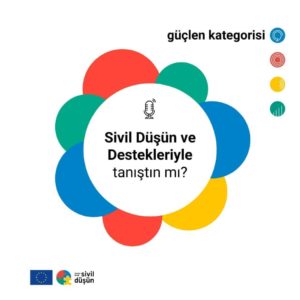The system of moral and ethical beliefs that guides the values, behaviours, and decisions identifies the reliability and credibility of institutions. The governmental institutions’ reliability and credibility affect its reputation in domestic and international arena. The reliability of a state is crucial for its economic and social development. The states whom internalize the ethical culture in their public administrations endow with national integrity, which brings sustainable development, rule of law, public trust and quality of citizen’s life. Therefore, the Technical Assistance for Increasing Ethical Awareness among Elected and Non-Elected Local Governments Project aims to increase ethical awareness, indigenize the ethical culture and prevent ethical violations in local administrations.
In domestic arena, democratic states must earn public trust in order to create feelings of mutual obligation and respect in society. As James S. Bowman indicated “People must have confidence that it will protect the public interest since representative democracy rests on officials and the trust they engender.” The public officials must safeguard the ethical codes during service provision and should not abuse their official power in order not to lose public trust. Ethical codes such as transparency, impartiality, accountability, and acting in public interests are the backbones of good governance systems. All of the government officials and the citizens must be aware of the ethical codes of conduct, and whenever they confront with an ethical violation, they must take against actions, which prevent corruption. The ethical codes during the service provision maintains the trust between government officials and citizens.
The transparency, impartiality and accountability takes critical part in international politics and trade as well. If a state breaches the abovementioned conducts, it may be harder to find international cooperation abilities and investment opportunities because of the loss of credibility and trust of other countries. Especially the EU member states have the standards of ethics. The basic ethics infrastructure has been shaped by the OECD framework in addition to the EU contexts provided by the regulations of the European Union legislative, regulative and decision-making bodies. To illustrate that, in the “Ethical Framework of the audited EU Institutions: Scope for improvement special report” it is stated that “the OECD’s principles for managing ethics in the public sector describe an ethics infrastructure that public institutions ought to have in place.” In order to conform to the pre-accession instruments of the EU, the Council of Ethics for Public Officials of Turkey, which have been established in 2004, started to implement the “Technical Assistance for Increasing Ethical Awareness among Elected and Non-Elected Local Governments Project” on 16 January 2019.
The project contributes to the prevention of corruption and ethical violations in line with the priorities set in the Instrument for Pre-Accession Assistance II along with European Standards. For the promotion of ethical culture, surveys have been conducted with 9000 anonymous respondents both from selected local government institutions and citizens in order to detect the ethical awareness level in seven regions of Turkey. The results show that a major part of the society is not aware of ethical codes and that is why they cannot understand whether there have been any ethical violations or not. Citizens who encounter ethical violations abstain from reporting the cases due to fear of losing a job or another kind of threat. Most of the responders lack knowledge on where to notice a violation, they also think the current legislations are not enough to prevent ethical breaches.
In order to prevent such situations, legal gaps which are not sufficient to prevent ethical violations have been identified and new legislative proposals were prepared with the Council of Ethics for Public Officials personnel, experts, inspectors from the General Directorate of Local Administrations & General Directorate of Provincial Administrations and relevant stakeholders such as Bar Associations. The main aim was to protect the whistle-blowers, who report (denounce) ethical violations and to make sure to impose necessary sanctions on the ethical violators. Therefore, a firm action has been taken to protect those who encounter ethical violations but are skeptical about reporting them.
As part of project activities, the local administrations in Germany have been visited in order to exchange experiences and benchmarking the best practices of the German local governments. This experience had a very strong impact and inspiration while conducting other project activities such as, drafting ethical codes. More than five hundred ethical codes have been drafted regarding specific service areas with the government officials of metropolitan municipalities and governorates. The government officials were very eager to produce specific codes of conducts; they analysed and specified the codes in line with their needs, since they frequently confront with the ethical breaches. Many national conferences and trainings have been held in order to increase the public awareness regarding the ethical codes. As the main aim of the project, numerous awareness raising activities have been conducted as public awareness has a crucial role for the national integrity system. People learn ethical violations, and corruption cases via media channels, and when citizens are knowledgeable of ethical codes, they become potential guards to protect ethical rules and to combat corruption.
In conclusion, remarkable steps have been taken to increase ethical awareness and internalize the ethical consciousness in Turkey under Technical Assistance for Increasing Ethical Awareness among Elected and Non-Elected Local Governments Project. Thanks to project activities, the ethical culture will be settled in time. The government officials and the citizens will be more aware of ethical codes of conduct, so that the service quality will increase thus the public trust and quality of citizens’ lives will improve.
Author: Çağla Atlı Çelik, WEglobal Project Manager







